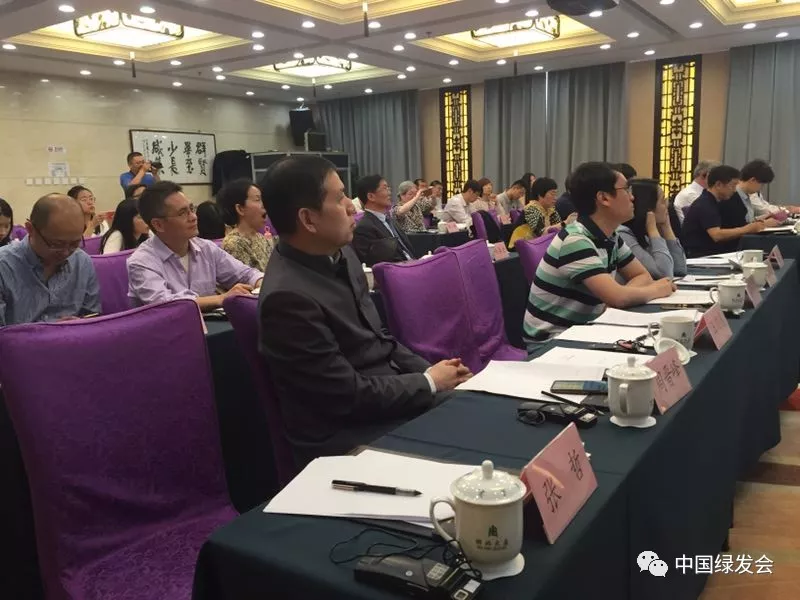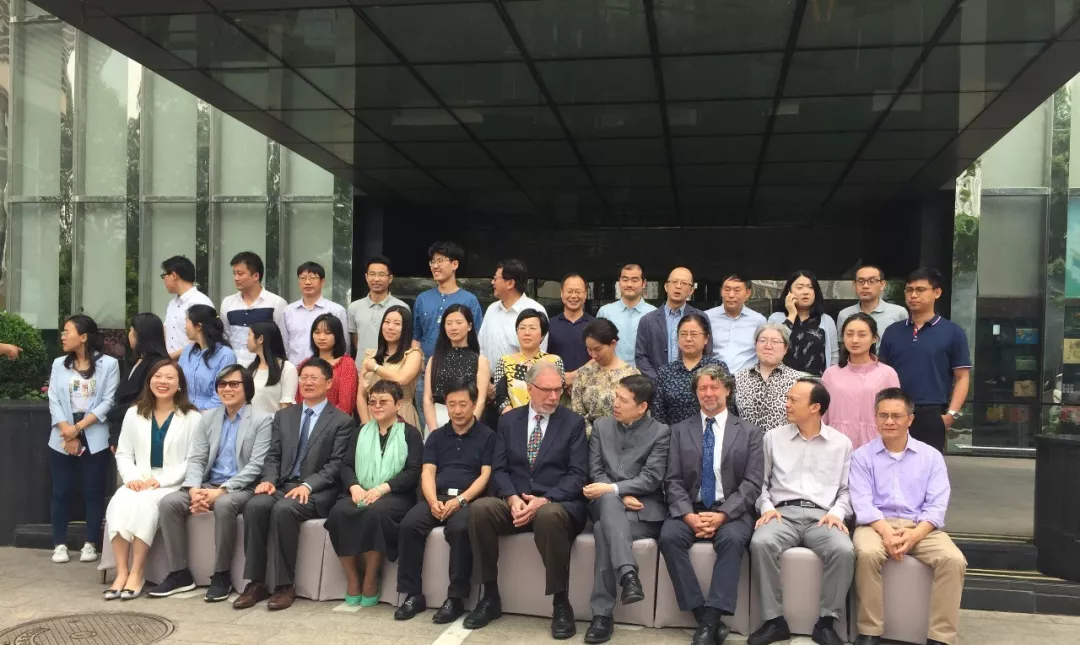On May 15, 2019, Dr. Zhou Jinfeng, the Secretary-General of China Biodiversity Conservation and Green Development Foundation (CBCGDF) was invited to participate in the Marine Environmental Economic Accounting Seminar hosted by the Fourth Institute of Oceanography of the Ministry of Natural Resources and shared his views on the spot.
The seminar aims to discuss the stakeholders and needs of China's marine environmental economic accounting, explore China's marine environmental economic accounting framework, propose local pilot research options, and China's marine environmental economic accounting policy recommendations. The Fourth Institute of Oceanography has undertaken the pilot project of marine accounting in China.
The following is a summary of Dr. Zhou’s speech to readers.
Today, I am honored to be on the scene. CBCGDF has worked with Dr. Zhu Chunquan, representative of the IUCN China Country Office, and Dr. Ouyang Zhiyun, Director of the Center for Eco-Environmental Research of the Chinese Academy of Sciences, etc. on a number of cooperation on the Gross Ecosystem Product (GEP) project, but the marine GEP Accounting has not been involved. The marine GEP accounting has a lot of space to carry out, we can work, and today's seminar will be an important starting point, CBCGDF is willing to participate.
I first learned chemistry and used catalysts to assist marine carbon sequestration. The climate is now our top priority, the ocean's absorption of carbon dioxide? What is the value of the global climate? How much is the ecological contribution to the global water cycle and atmospheric circulation? We are not clear. In addition, plankton, algae, and various ecologically assisted organisms in the ocean, such as coral reefs, have their ecological value. Where is it reflected? Worth exploring.
How many fish did we eat? China has more fish, and it will not affect the ocean too much. But the world kills a lot of fish every year, so is the fish that killed is given by God? No, it is ecological! So, do we have to calculate these ecological effects? The GEP accounting of the ocean is a brand-new subject, which contains a wealth of content, the fields, regulations, standards involved, and even take several years to study. But what areas do they cover? How is the baseline divided? These all require us to study further.
For example, CBCGDF recently patrolled the front line of the "China Conservation Area for Relic Gulls" in Baguatan, Tianjin to protect the coastal wetlands from damage. There are smooth river blue clams and sea oysters on the tidal flats. Now thousands of people go there to dig them every day, and the consequences will be very serious. The Baguatan is the main site for migratory birds to migrate and forage, including the relic gulls (the national first-class protected animal in our country). If the clams are all mined up, the tidal flat will be finished, and the relics gulls will be finished because it is one of the few habitats left in the world for them and are related to the survival of the species.
Another example, the Caofeidian in Tangshan, Hebei Province, the original natural coastline is very long, but the phenomenon of land reclamation is serious. Now it has been developed, leaving birds to inhabit the place is even rarer. Then we carry out marine GEP accounting, how is the baseline of the ocean is drawn? Is it going to a few kilometers, a few hundred meters, or thousands of meters? It is a border issue. I have also consulted Dr. Michael BORDT (consultant of the ESCAP project), the current marine GEP in China and even the global marine GEP are both a pilot and a start. But this kind of thinking and such research can help raise people’s awareness of the ecological value of the ocean.
President Xi Jinping proposed “Lucid Waters and Lush Mountains are Invaluable Assets”. This sentence is extensive and profound, and many people do not understand it very well. We are also gradually deepening our understanding through a series of work. I feel that today’s seminar and reports will have new insights and gains new things every time whenever listen to it. Today, we have heard that Wang Xiaohui (researcher of the National Oceanographic Information Center) talked about the marine economy and methodology. I think the marine GEP accounting is very complicated and difficult. For example, how to calculate the ecological value of the area around Hanjiang (Shayang Port) in Hubei Province? Because this port not only has the effect of traditional cleaning and digestion of urban sewage, but also bears the role of port transportation economy, and also has side effects on marine ecology. For example, the noise impact of ocean transportation on voyage, the destruction of organisms, the propeller killing the whales and finless porpoises, the impact of noise on marine life and so on. But the work that started today is of great significance.
CBCGDF has been paying attention to marine protection and has done a lot of work. We call on Dongtan, Nanhui, Shanghai, to protect the ecological environment of coastal wetlands; we work with numerous international organizations to study how to reduce the negative impact of the marine economy on marine ecology (of course not all impacts are negative, but inevitable exist negative impacts). Thanks to Director Zhang and Dr. Zhao from the Fourth Institute of Oceanography of the Ministry of Natural Resources for giving us this opportunity and platform to open up the learning model. We very much hope that we can get more learning opportunities in our future work. Thank you!
(This article is organized according to the meeting video and is not confirmed by the speaker himself.)

 (Photo credit: CBCGDF)
(Photo credit: CBCGDF)
Original Chinese article:
http://www.cbcgdf.org/NewsShow/4854/8607.html
By / Niu Jingmei
